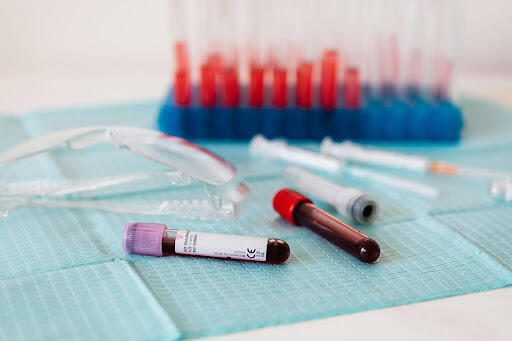
Understanding Toxicology & Blood Tests: A Definitive Guide
Toxicology and blood tests play a crucial role in modern medicine, public health, workplace safety, and even legal cases. These tests provide detailed insights into a person’s health status, exposure to harmful substances, or the effectiveness of medical treatments. Whether conducted as part of a routine check-up, an emergency assessment, or a specialized investigation, they offer valuable data that doctors and patients rely on to make informed decisions.
This guide will walk you through the basics of toxicology and blood testing, how they work, their different applications, and why they matter so much.
What Exactly Is Toxicology Testing?
Toxicology testing is the scientific analysis of biological samples, such as blood, urine, or hair, to detect the presence of drugs, alcohol, chemicals, or toxins. Unlike standard blood work, which looks at health indicators, toxicology focuses specifically on identifying and measuring substances that may impair bodily function or pose health risks.
These tests are widely used in emergency rooms, workplaces, sports organizations, and legal settings. When someone overdoses, toxicology tests can reveal the exact drug responsible, guiding life-saving treatment. In the workplace, they ensure compliance with safety standards, while in competitive sports, they help enforce fairness by identifying banned substances.
While blood tests are essential for precise measurement of substances currently in the bloodstream, other screening approaches like urine multi-panel testing play a complementary role in toxicology. For example, healthcare providers and researchers sometimes reference tools such as 16 panel cups to screen for a wide range of substances in urine as part of comprehensive substance use monitoring strategies.
The Role of Blood Tests in Toxicology
Blood tests are among the most common and accurate methods of toxicology screening. They can measure both the presence and concentration of substances in the bloodstream at the time of testing. This makes them useful in time-sensitive scenarios such as suspected poisoning, DUI investigations, or monitoring patients on prescribed medications.
Compared to urine tests, blood tests provide a clearer picture of recent exposure and current impairment levels. They can detect alcohol, prescription drugs, narcotics, and even toxic chemicals like lead or arsenic. Blood tests are more invasive and may require professional collection, which makes them less convenient than other methods in some contexts.
Applications in Healthcare and Beyond
Toxicology and blood testing extend far beyond the hospital setting. They are used in research, legal proceedings, public health monitoring, and employment practices. Look into https://lynkdiagnostics.com/ and other toxicology and blood testing services to better understand the range of options available, from clinical diagnostic testing to specialized toxicology analysis. In healthcare, toxicology tests are invaluable for diagnosing overdoses, managing chronic medication use, and ensuring patient safety during treatment.
In the workplace, employers may use them to comply with safety regulations in industries like construction, transportation, and manufacturing, where impaired judgment could be dangerous. Legal professionals often rely on toxicology results in cases involving substance abuse, custody disputes, or criminal activity.
Different Types of Toxicology Tests
Toxicology isn’t a one-size-fits-all field. Depending on the purpose, different sample types and testing techniques may be used:
- Urine tests: Common for employment screenings, these can detect substances days or weeks after use.
- Hair tests: Useful for identifying long-term substance use, as traces can remain for months.
- Blood tests: Provide real-time accuracy about substances present in the bloodstream.
- Saliva tests: Easy to collect and increasingly used in roadside testing.
Each method has advantages and limitations, and multiple testing types are combined for the most comprehensive results.
How Results Are Interpreted
One of the most important aspects of toxicology and blood testing is not just identifying a substance but understanding what its presence means. A trace amount of a drug might indicate past use but not current impairment, while higher concentrations could point to active intoxication or overdose.
Medical professionals and toxicologists rely on reference ranges and scientific studies to interpret results. Context is key: patient symptoms, history, and timing all influence the meaning of a test result. For example, finding traces of a legally prescribed medication may be completely normal, while detecting the same medication in a competitive athlete could have serious consequences.
Challenges and Limitations
While toxicology and blood tests are powerful tools, they are not without challenges. False positives and false negatives can occur, leading to misinterpretations if not carefully managed. Cross-reactivity, where one substance mimics another in testing, can complicate results.
Accessibility and cost can be barriers. Some specialized toxicology tests may not be widely available, and insurance may not always cover them. For this reason, accurate testing and professional interpretation are important to avoid costly mistakes or unnecessary stress for patients.
The Future of Toxicology Testing
Advances in technology are reshaping the field of toxicology. Rapid on-site testing devices are becoming more reliable, offering near-instant results in workplaces and emergency situations. At the same time, lab-based testing is improving in sensitivity and accuracy, capable of detecting ever-smaller concentrations of substances.
Emerging trends include AI-powered data analysis, which can help doctors interpret complex results more efficiently, and genetic testing, which may one day predict how individuals metabolize certain drugs or respond to toxins. These innovations promise a future where toxicology is faster, more personalized, and even more integral to health and safety.
Toxicology and blood tests are vital tools that impact healthcare, workplace safety, legal systems, and public health. By identifying harmful substances, guiding treatment, and ensuring accountability, they safeguard individuals and communities alike. Understanding how these tests work, their different applications, and their limitations can help people better appreciate their role in modern life.
As science continues to evolve, toxicology and blood testing will only become more advanced, accurate, and accessible, reinforcing their position as important pillars of health and safety in society.